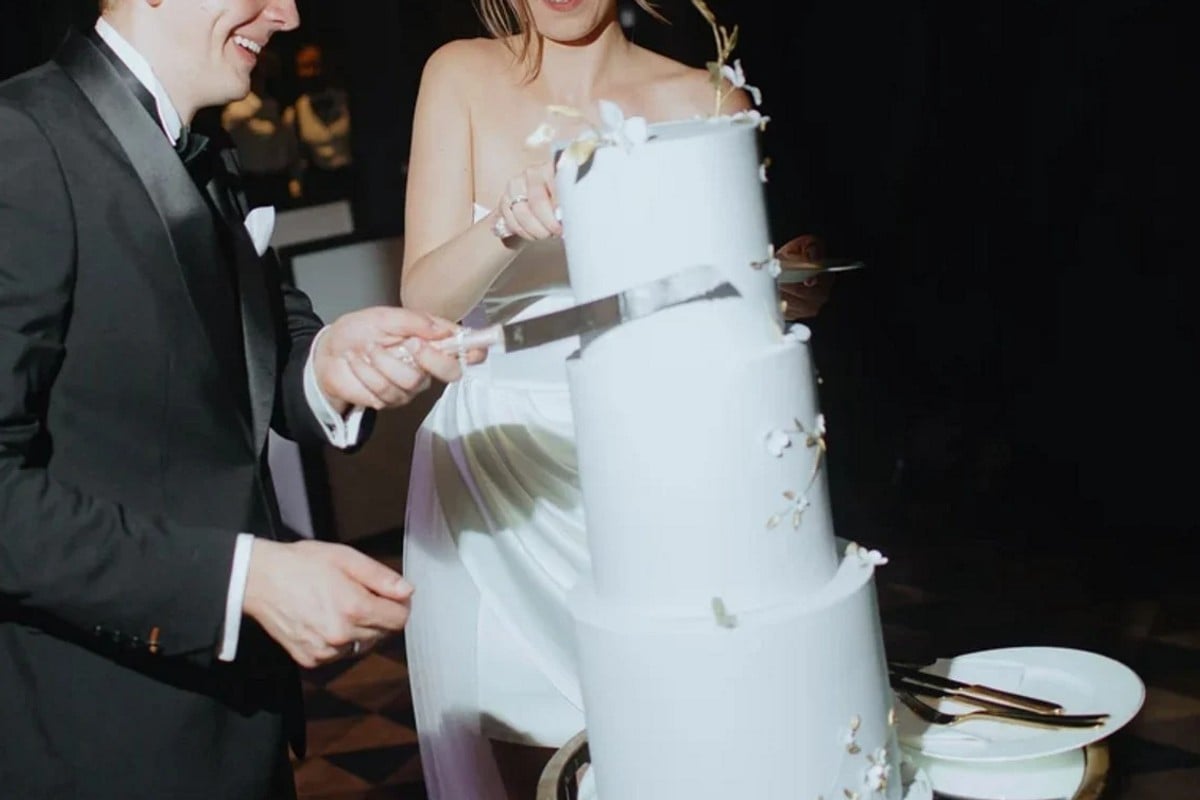
Sally's* earliest memories are filled with the sound of her mother's voice correcting her, criticising her, never quite satisfied with anything she did.
As the oldest daughter, she bore the brunt of what she describes as her mother's narcissistic behaviour; an alleged need for control that would shape Sally's entire childhood and eventually push her to make a choice that would define her adult life.
"My whole life, my mum was always picking on me, nothing was ever good enough," she told Mamamia.
"I remember being told how to speak properly. And if I said something to her, I couldn't just answer 'Yes'. It had to be 'Yes, mum' or 'Yes, mother'. I wasn't allowed to back-chat or question anything."
The rigid rules and impossible standards created a household where, Sally says, she had to walk on eggshells, constantly trying to anticipate her mother's moods and demands.
Watch: 10 signs your parent is a narcissist. Post continues after video.
Then her parents divorced. While Sally's brother stayed with their mother, she lived with her dad, and visited her mother during school holidays.
"I still have trauma now. I hate packing, because it just reminds me of having to go there," Sally said.
As Sally entered her twenties, she tried to rebuild some kind of relationship with her mother. There were periods of talking, then not talking; the familiar dance of many adult children trying to navigate difficult family relationships.
Seeking a fresh start, Sally moved interstate and, eventually, overseas. It was while she was there that she met the man who would become her husband.
When she brought him back to Australia to meet her family, her mother's response was harsh.
"She told me, 'He's not good enough for you. He only wants a Visa'. We've been married for 10 years now, so clearly it was not just for a Visa," Sally said.
But it was when Sally began planning her wedding that she says her mother's controlling behaviour reached its peak.
"She started interfering. She just wanted to take it over, as if it was her wedding. Any decisions I wanted to make or things I wanted she would just shoot me down."
Finally, Sally reached her breaking point. She decided to completely change her wedding.
"I got to a point where I was just like, 'You know what? I'm not having a big wedding'. The wedding's off. And then two weeks before, we gave our immediate family notice, like, 'Hey, we're getting married. If you want to come, come. If you don't, don't. But this is what we're doing."
Then, she had the final in-person conversation she would ever have with her mother. It was to tell her she was no longer welcome at her special day.
"I told her, 'You are not coming to my wedding. You are not invited. If you show up, I will have you removed by the police'."
According to Sally, her mother's reaction was explosive.
"She lost it. She made it all about her. She said I was being selfish. I wasn't a good daughter. My marriage was gonna fail. She said she'd show up. So I had to tell my brother, point-blank, 'If she shows up, mate, the cops are coming'."
Since then, Sally has been no contact with her mother for over a decade.
"I haven't spoken to my mum in 15 years, she's without a doubt a narcissist." Sally told Mamamia.
"She still speaks to some of my siblings, but she'll try and pass messages to me, like, 'Oh, Mum said Happy Birthday'. Or 'Mum says this'. I'm like, you know what? I don't care what she says anymore. Do not tell me what she says, because I want no part of her."
The emotional toll of this decision has been significant.
"I'd always get triggered around my birthdays. That was a really sad time for me, because I remember she once said to my brother that I didn't exist and that she'd only given birth to three children, not four."
As a result, Sally has been working with a therapist to process her grief and move forward.
"I had so many feelings of rage, anger, these big, big feelings, but my mum didn't care. It was me. I was the one that was suffering. Even though she wasn't in my life, she still had such a stronghold for so many years of abuse. In my head, she's dead to me, and it's easier that I can just have that grief gone."
The journey also allowed Sally to examine patterns in other relationships and recognise how her upbringing shaped her interactions with those around her.
"It made me look at my friend circle as well, and see there's a pattern of me being a nice guy and me being a bit of a pushover and a people pleaser, because all of that was really ingrained into me. I'm probably a bit more ruthless now, whereas in the past, I would just want to please everyone."
By sharing her story, Sally hopes that other people in similar situations will feel less alone.
"When I meet other people, they then are a little bit empowered to go, 'You know what? I'm not going to tolerate this either'.
"Just because you were born from that person, you don't have to have a relationship."
Feature Image: Getty (Stock image used for illustrative purposes only).
*Sally's name has been changed for privacy reasons.




























































































